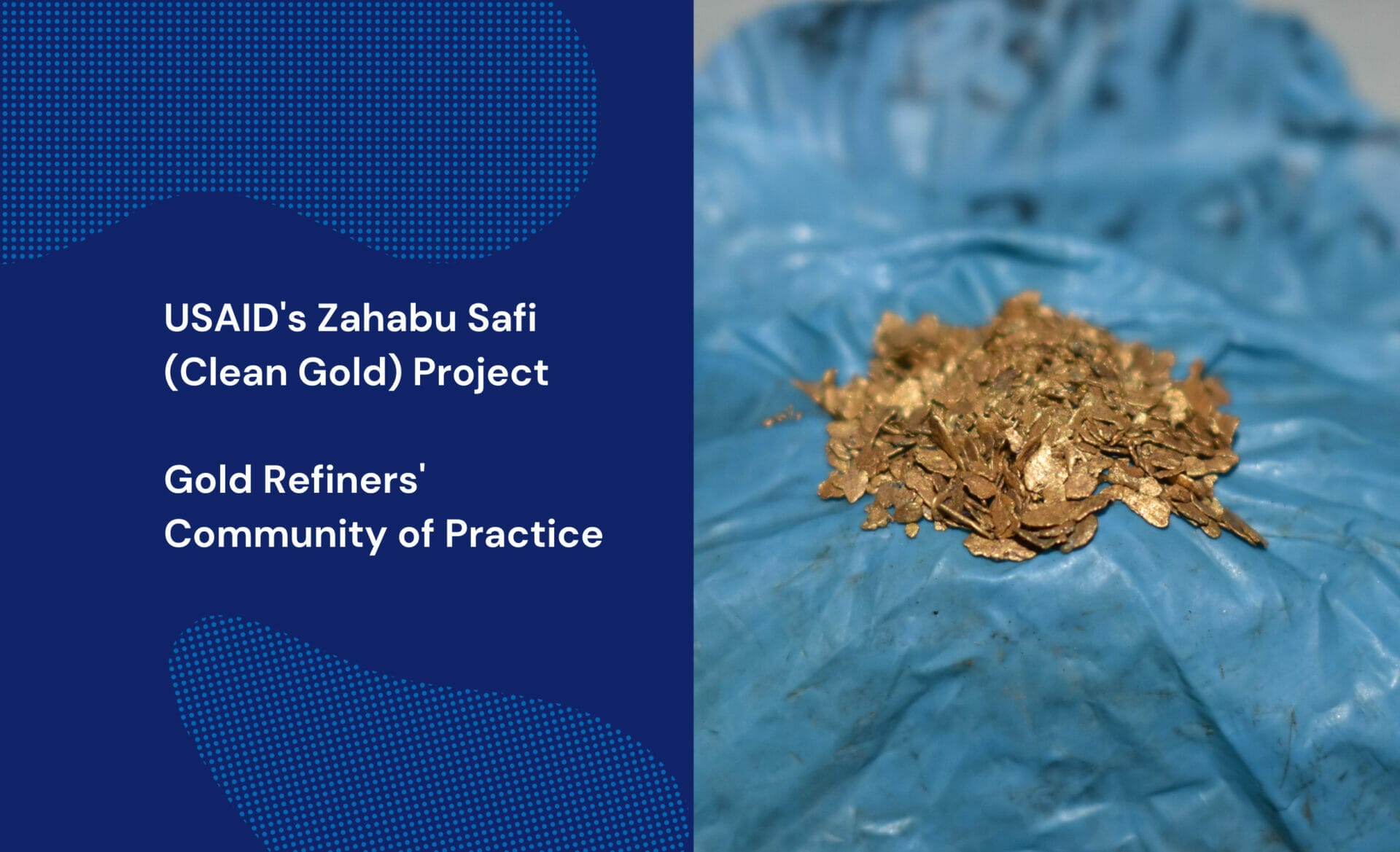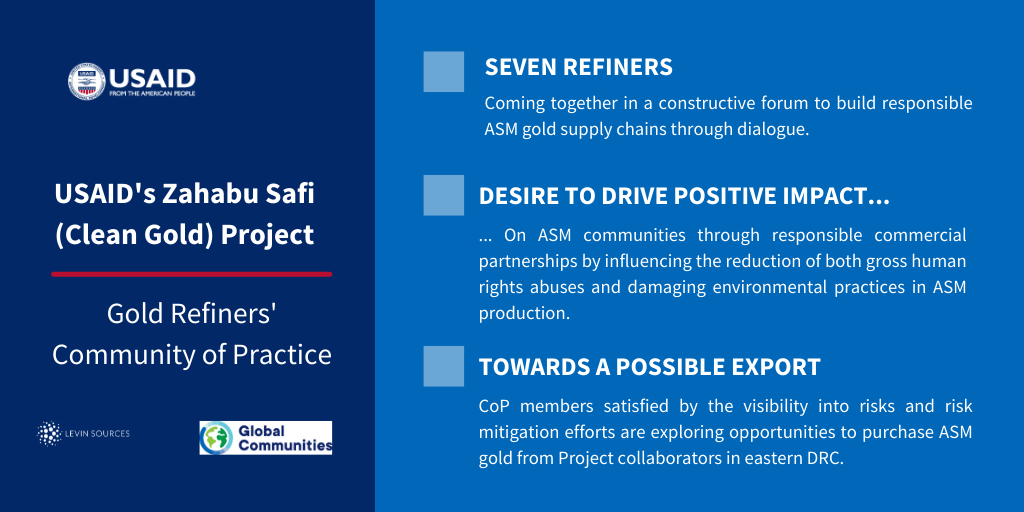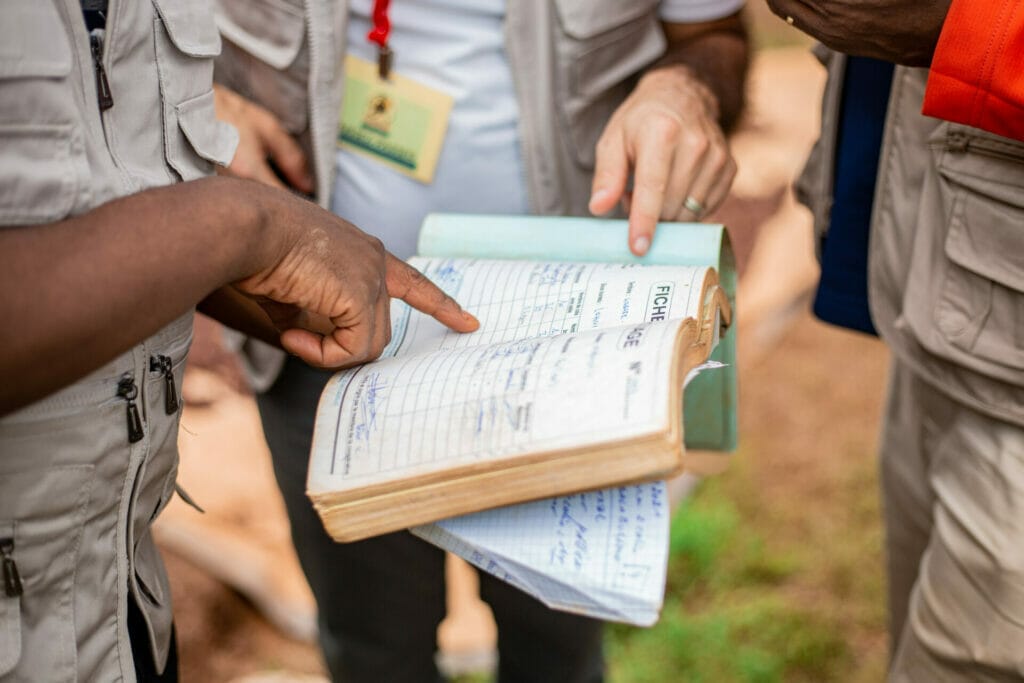News > Blog
USAID’s Zahabu Safi (Clean Gold) Project Launches Refiners Community of Practice to Help Set Up Responsible Gold Supply Chain from Eastern DRC
Published 05/27/2022 by Global Communities

By Rachel Brass – Director, Market Linkages and Investment, USAID’s Zahabu Safi (Clean Gold) Project
Gold refiners Heimerle + Meule, IGR, Italpreziosi, L’Orfebre, MKS PAMP, PX Precinox and Rand Refinery have joined a pre-competitive and collaborative group of refiners interested in learning and sharing the realities of sourcing artisanal and small-scale mining (ASM) gold from the Democratic Republic of the Congo (DRC).
These brands came together in late 2020 under the umbrella of USAID’s Zahabu Safi (Clean Gold) Project, which is being implemented by Global Communities, to form a Refiners Community of Practice (CoP). Conscious of the positive impact the sector could have on ASM communities through responsible commercial partnerships, these seven companies agreed to work together to explore the possibility of such partnerships in the DRC as part of their larger Environmental Social and Governance commitments and recognizing the large potential market in the DRC.
Convened and curated by Levin Sources, the CoP is a constructive forum to build responsible ASM gold supply chains through dialogue and engagement with Project-supported upstream cooperatives and exporters, Project implementing partners, and sectoral standards bodies to increase demand for responsibly-sourced gold from the DRC. Refiners provide much valuable peer support and act as a sounding board to the Project team to help overcome key challenges of the kind they might have previously faced. Actionable information shared to date includes the minimum volume of gold required, views on risk analysis and due diligence and the importance of only working with mine sites certified by the DRC government.

All members of the CoP have previously had either commercial involvement and/or interest in the DRC and wanted to share their experience and learn from others. The end goal is that, if satisfied by the visibility into the risks and risk mitigation efforts taken by Project-supported actors upstream in the DRC, they will explore opportunities to purchase ASM gold from project collaborators in eastern DRC.
From their work, the seven refiners know first-hand that international authorities, stakeholders and markets for precious metals, such as the London Bullion Market Association, Responsible Minerals Initiative or London Metal Exchange, have stringent requirements for sourcing gold from ASM. Continuous improvement towards compliance with these requirements can help ensure that gold is sourced responsibly, which means that it was sourced without contributing to conflict, gross human and labor rights abuses (such as child or forced labor) and minimizes harm to the environment. However, in conflict-affected countries with weak/nascent democratic institutions like the DRC, these requirements result in market barriers for ASM cooperatives and exporters that can best be overcome as part of a pre-competitive, multi-stakeholder effort.

USAID’s Zahabu Safi (Clean Gold) Project
The U.S. Agency for International Development (USAID), in partnership with Global Communities and Levin Sources, launched USAID’s Zahabu Safi (Clean Gold) Project to help the Government of the Democratic Republic of the Congo (DRC) in its effort to formalize the artisanal and small-scale mining (ASM) sector and attract ethically conscious jewelers.
Sourcing from the DRC comes with certain risks that have been pro-actively identified and mitigated by the Project’s multi-skilled team led by Global Communities, with support from consortium partner Levin Sources and from due diligence partners RCS Global and Better Chain during the time they were directly contracted by the Project. In a spirit of transparency, CoP members have access to all Project-generated supply chain documents, such as risk profiles, supply chain analyses and corrective action plans being implemented by project-supported cooperatives and upstream collaborators. The CoP members are provided with translation and other support required to pursue dialogue with upstream actors.
The CoP platform provides a built-in downstream commercial counterpart for the Project and project-supported actors upstream with whom to explore business opportunities. Without this kind of safe space discussion forum to collectively learn lessons and problem-solve, responsible sourcing from the DRC cannot be easily achieved.
Over the course of the last year and a half, the CoP convened regularly. During these meetings, members received key project updates and learned of progress to achieve responsible exports from project-supported cooperatives and exporters operating in South Kivu, Maniema and Ituri provinces, where the Project is investing the most resources at present. This year, members have started holding bilateral conversations with upstream partners to ensure due diligence requirements are met ahead of a possible export.
By learning from and engaging with the seven refiners who make up the CoP, the Project seeks to increase demand for commercially viable and responsibly sourced ASM gold from the DRC. The refiners’ very involvement in the Project helps to guide and right-size Project activities upstream in a manner that results in market-led solutions and supports the necessary behavior change by cooperatives and exporters to implement risk mitigation plans that tackle things like the worst forms of child labor, on-site military presence, and widespread use of mercury and other toxic substances in their production operations. The CoP offers an alternative, responsible market channel for partner cooperatives and exporters, where access is contingent upon compliance with the most forward human rights, environmental and anti-corruption laws, as they know that infringement could create barriers to sourcing and trade with particular (responsible) international buyers. The CoP platform has allowed the Project to facilitate commercial relationships between supply chain actors upstream and the downstream that we hope will be sustained beyond the Project lifecycle.





